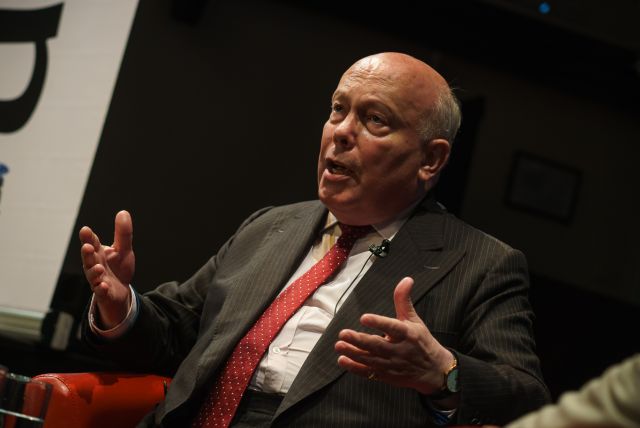The London Screenwriters’ Festival launched its 2016 edition in fine style last month as Oscar-winner Julian Fellowes (Gosford Park) shared his experiences and insights with a packed house at Regent’s University in London. Bob Schultz took a look at some of the quotes from his talk, and the lessons to be derived from each:

“I Was That Fool”
Opportunity often comes in the disguise of a “Terrible Decision”. Early in his career, Fellowes was on a production that suddenly needed a lot of writing done on literally no budget. “What fool would do that?” came the question. The answer? Julian.
When you are trying to break in, your strategy must include a balance of short-term self-interest and long-term reputation. Are you a team-player, willing to put the production’s goals above your own (within reason)? What other forms of compensation can you devise if money is not an option?
The path from where you are to where you want to be is never a straight one. Taking a job that pays less than you would like (or nothing at all) can result in a wider network of industry contacts, a reputation for success, or even paying work straight away.
Strategizing a direct path from A to B will often result in a static state of mind where a certain flexibility is called for. In short, it’s not about planting a seed and harvesting the fruit. It’s about creating an environment in which fruit can thrive, and nurturing the seedlings that sprout.
“This fat, bald (British) actor of nearly 50 is suddenly writing a Hollywood film.”
Leaving aside for the moment that there is no shortage of fat, bald writers, Fellowes’ path to Hollywood success was a marathon, not a sprint. Chasing your dream of having a script produced is a noble pursuit, of course. But more often, reaching your goal comes at the end of a long, challenging road. Every “overnight success” has dedicated years to learning his/her craft, developing a professional network, and skipping nights out to focus on becoming a writer.
Because Fellowes had people who would be willing to vouch for him, he was able to work with Robert Altman. From there, Altman himself was willing to vouch for Fellowes. A screenwriting career is a long play. Don’t let momentary setbacks distract you from the finish line.
“That note they’re giving you might not be what’s wrong, but there’s always something that needs fixing.”
When you’re seeking to be a professional screenwriter – surprise, surprise – you’re going to be dealing with other professionals. Professional actors know character and dialogue that can be spoken. Professional Directors know camera and story. Professional producers know raising money and marketability. All of these skills are critical in getting a movie made. It is incumbent on you to hear them.
But don’t necessarily listen to them. Every note you are given is going to be born out of a legitimate concern – even if the note itself is wrong. Writing is your expertise, and when someone comes to you with a change, it is important for you to determine what the note is intended to accomplish – and come up with the best solution to that problem.
“In the end I was standing on stage alone.”
In conclusion, never forget, it’s your name on the screenplay, and it is you who will be getting all the criticism if the script isn’t where it ought to be. Stand up for what you think is right with your story. Protect your characters. Embrace your themes and dialogue. Then maybe you will be standing alone as Julian Fellowes did: on stage, collecting your Oscar. View a video of the entire discussion here.
If you want to learn from other screenwriters and directors at the top of their game, pitch your idea to executives and agents, receive advice and feedback from industry players, and network with like-minded peers, the London Screenwriters’ Festival is taking place between 2nd and 4th September.
Receive an exclusive 15% discount with the code: WANDA-16X. Click here to reserve your place
Comments